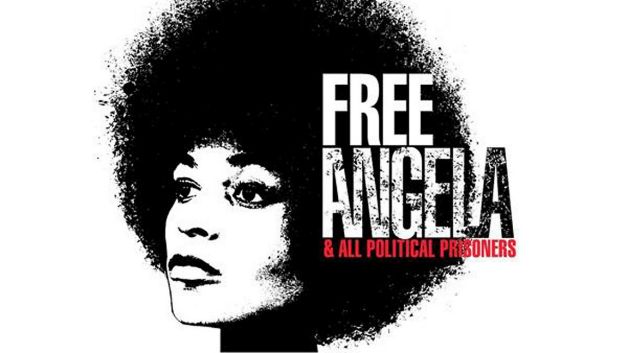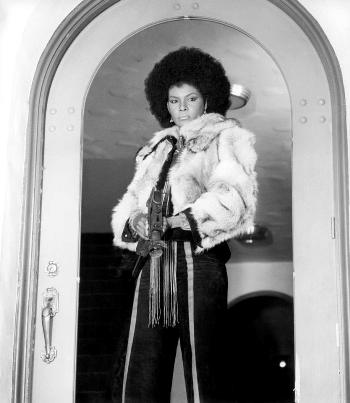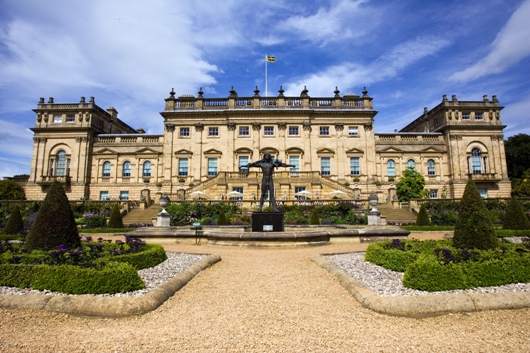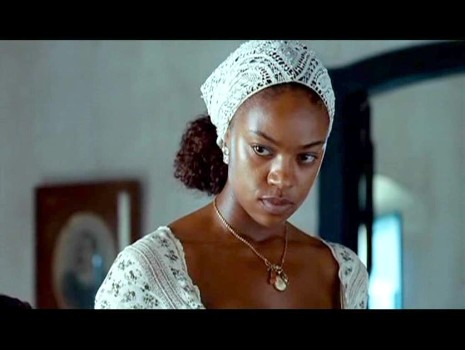Films

Sat 29 June 2 to 5pm
BFI Southbank
Belvedere Road SE1
Tube:Waterloo
Book tickets https://whatson.bfi.org.uk/Online/mapSelect.asp
Plus Q and A
An authoritative and gripping documentary about an icon for African-Americans and the African diaspora. In the US in the late 1960s, Angela Davis became active as a high-profile human- and civil-rights campaigner. Subsequent arrest and trial made her a household name in the USA and abroad. Alongside incredible archive footage and interviews, Davis reflects on being branded a terrorist and making the FBI’s ‘most wanted’ list.k

4 Great talks coming up !
- Friday 24 May, Sexualised Violence
- Saturday 15 June, Urban Music: Society and Religion
- Friday 28 June, African Women Reistance Leaders
- Saturday 29 June, The Impact of Hip Hop on White masculinities
Sexualised Violence and the USA Black Freedom Movement with Dr Althea-Legal Miller
Friday 24 May 6.30pm to 9.00pm. This event will start at 6.30pm, latecomers will miss out and may not get a seat
Admission free if booked via eventbrite http://sexviolenceandcivilrights-es2.eventbrite.co.uk/?rank=2#. Donations accepted on the day
Queen Nzinga was an African Queen who fought against the European invasion of southern Africa (Congo/Angola). The Queen Nzinga lecture series will feature African female academics / holders of expert knowledge, speaking on topics of their choice on a monthly basis. The Nzinga lecture series will provide a regular platform for women of African descent to highlight important issues in an academic setting. As a result of these lectures a Black Women in Academia Support Group has been set up. Dr Michelle Asantewa will present an update on the group on the 24th May
See previous Queen Nzingha lectures here
https://www.youtube.com/blackhistorywalks
Sexualised Violence and the USA Black Freedom Movement
Violence against protesters during the 1960s African American freedom movement has been popularly characterised by scenes of fire hoses, dogs, club wielding law enforcers, and vicious white mobs. Yet the suppression of civil rights struggles was also sexualized.
The heroic missives of male leaders, such as Martin Luther King’s letter from a Birmingham jail have popularly shaped how we view jail and the experience of imprisonment for civil disobedience in 1960s America. But as thousands of predominately young African Americans – who in some regions were disproportionally made up of adolescent black girls – committed to arrest and imprisonment during the movement, police officers and jailers attempted to undermine their sexual rights and the goals of the black freedom struggle through racialized sexual violence. In her presentation ‘Sexualized Violence and the American Black Freedom Movement’ Researcher and freelance writer, Dr Althea Legal-Miller will argue that the semi-occluded space of the jail left female civil rights workers particularly vulnerable to an innumerable repertoire of sexualized oppressions from white male law-enforcers, which included sexual comments and threats, sexual intimidation, voyeurism, strippings, sexualized beatings, abuse of search authority, molestations, and rape.
This presentation will illuminate little-known narratives of female imprisonment, and importantly, resistance during the mass incarcerations of the early 1960s. Additionally, the presentation will illuminate how the politicised environment of the 1960s empowered young women and girls to break with general proscriptions against speaking about sexuality. Crucially, young women and girls understood that respectable silences around sexual discourse did not foreclose bold denunciations of sexualized violence, and in turn they began to courageously overthrow sexual taboos and use their testimonies as powerful political weapons against white male supremacy.
'Urban' Music, Society and Religion: Connecting the dots
Saturday 15 June 7.30pm to 9.00pm. This event will start at 7.30pm, latecomers will miss out and may not get a seat
Admission free if booked via eventbrite http://www.eventbrite.co.uk/event/6796385171/es2/?rank=1#. Donations accepted on the day

Queen Nzingha Lecture (7) 'Urban' Music, Society and Religion Connecting the Dots
Hallowed be thy Grime? : A musicological and sociological genealogy of Grime music and its relation to black Atlantic religious discourse’
In the 90's we had jungle whereas now Dizzy Rascal, Tinie Tempah,Tinchy Strider, Scorcher. Dot Rotten and other young black musicianss have infiltrated the Top Ten with whats' called 'Grime' . What is Grime ? Is it still black music ? Do teenagers see any black history in the beats, is there any ? How is Grime connected to religion and the concept of the African cultural transmission across the Atlantic over the last 500 years ? Where's the black history in black British youth culture ?
This presentation by Phd candidate Monique Charles will explore ancient and modern music & its characteristics, the sociology of religion and how these are applied in the African diaspora to extrapolate religious meaning and emotion in a concert setting

African Women Resistance Leaders. (UK 1970's/80's)
Friday 28 June 6.30pm to 9.00pm. This event will start at 6.30pm, latecomers will miss out and may not get a seat.Admission free if booked via eventbrite http://africanwomenresistanceleaders-es2.eventbrite.co.uk/?rank=4#
(Part of Black Power Sisters Weekend). In preparation for the Angela Davis film premiere on the 29 June, we present visual biographical details of black women from the UK and around the world who have resisted colonialism and racism . Women do not get the historical credit they deserve and quite often there is a focus on African Americans to the exclusion of local heroes. This event will give the audience video and documentary evidence of the who, what and why of 30 female fighters who used guns, pens or placards to fight for equallity in modern Britain. Bring notepad and pen and be on time, latecomers will end up standing . Women include: Queen Nzinga, Dora Akunyili, Dame Jocelyn Barrow, Olive Morris, Una Marson, Edna Ismail, Lieutentant Sanite Belair, Althea Gibson, Mavis Best, Fawzia Hashim, Dr Beryl Gilroy, Leyla Hussein,Gerlin Bean, Althea Lecointe, Stella Dadzie, Dr Patrica Bath, Professor Elizabeth Anionwu and many more
See our other exciting events at www.blackhistorywalks.co.uk )

The Impact of Hip Hop on White Masculinities
Saturday 29 June 6.30pm to 9.00pm. This event will start at 6.30pm, latecomers will miss out and may not get a seat
Admission free if booked via eventbritehttp://impactofhiphoponwhitemen-es2.eventbrite.co.uk/?rank=3# . Donations accepted on the day
In the 1970's Hip Hop music represented the voice of black American youth in regards to racism, oppression, poverty and black urban life experiences. It also gave black youth a platform to address and celebrate black history, challenge dominant mainstream thinking and encourge a sense of empowerment. However, fast forward to today and hip hop has become one of the most popular global music genres, racking in millions of pounds from an abundance of young fans, including young white boys wearing hip hop inspired clothing, using hip hop slang,spitting lyrics and street-dancing. So we are all one big happy family, right? This lecture will explore the ways that hip hop has influenced white masculinities and will question whether hip hop encourages cultural
 |
Queen Nzingha Lectures (7): 'Urban' Music, Society and Religion
|
 |
Queen Nzingha Lectures (5) : Sex, Violence and Civil Rights
|
 |
Queen Nzingha Lectures (6): The Impact of Hip Hop on White...
|
 |
African Women Resistance Leaders : UK 1970's/80's
|

1834 Slavery Compensation: Who got the money ?
Sat 15 June 2pm to 6pm
This event is sponsored by Birkbeck, University of London, www.blackhistorywalks.co.uk, and www.nabss.org.uk
In 1834 when the British abolished slavery in the Caribbean the government paid 20 million pounds in compensation to the owners of the enslaved Africans. The Africans got nothing.
Many people have wondered who exactly got that money and what they did with it. Which islands and plantations benefited ? What houses were built ? What institutions were established ? What was the cultural and economic legacy of this massive payout ? Can it be identified and quantified ? A team of scholars from UCL have been researching exactly these questions and more. Over the last 3 years they have collated research on several thousand beneficiaries and created a searchable, user-friendly website that covers...
- Which individuals received monies.
- How much they received
- Which houses they lived in
- What they bought with the money
- Which cultural/ educational institutions they established or supported with the money
- What islands/plantations/ individuals in the Caribbean were compensated
- Exactly how banks and financial institutions used the money to further the needs of empire
- The role of slave-owners as writers and historians
- The connections between the compensation, finance companies and political parties
- Physical legacies; buildings, statues, parks, docks,railways, bridges, libraries
- How to use the website to expand your own personal or professional or genealogical research
Professor Catherine Hall, Dr Nick Draper, Keith McClelland, Kate Donnington and Rachel Lang will share their research, demonstrate how to use the website and take extended questions on both topics
Saturday 15 June 2pm to 6pm. This event will start at 2pm, latecomers will miss out and may not get a seat
Venue: Birkbeck University WC1 E 7HX (entrance on Torrington Square side), Tube Holborn/Russel Square,Tottenham Court Road click here for map and to book
Admission free only if booked via
If you wish to particpate in the live website demonstration please bring a laptop.
2pm Intro/ welcome
4.20pm Welcome back. Preview of 'Is there a case for Reparation' ? on 10 March
4.45 2nd set of speakers, specific individuals of note in London and how they used their compensation
The Slaveholders of London project http://www.ucl.ac.uk/lbs/project aims to develop the first systematic analysis of the extent and significance of slave-ownership in the formation of modern Britain. Drawing on the census of slave-owners in the British empire created by the Slave Compensation Commission in the 1830s to manage the distribution of the then enormous sum of £20m paid as compensation to slave-owners on the abolition of colonial slavery, the project will comprehensively document the people in nineteenth-century Britain who either owned slaves or otherwise benefited financially from slavery, and examine the different legacies of slave-ownership. A database Encyclopedia of British Slave-Owners will be created which will capture each of the several thousand slave-owners resident in Britain in the 1830s. It will be publicly accessible and act as hub for the local and regional efforts to show the linkages of communities in Britain to slavery.
The project will examine their roles and influence within British society in their lifetimes, and trace their major legacies after their deaths.

A www.blackhistorywalks.co.uk production
African Women Resistance Leaders : UK 1970's/80's
Friay 28 June 6.30pm to 9.00pm. This event will start at 6.30pm, latecomers will miss out and may not get a seat
Admission free if booked via eventbrite http://africanwomenresistanceleaders-eac2.eventbrite.co.uk/#. Donations accepted on the day
Check out our Queen Nzingha lectures here
https://www.youtube.com/blackhistorywalks
African Women Resistance Leaders. (UK 1970's/80's)
(Part of Black Power Sisters Weekend). In preparation for the Angela Davis film premiere on the 29 June, we present visual biographical details of black women from the UK and around the world who have resisted colonialism and racism . Women do not get the historical credit they deserve and quite often there is a focus on African Americans to the exclusion of local heroes. This event will give the audience video and documentary evidence of the who, what and why of 30 female fighters who used guns, pens or placards to fight for equallity in modern Britain. Bring notepad and pen and be on time, latecomers will end up standing . Women include: Queen Nzinga, Dora Akunyili, Dame Jocelyn Barrow, Olive Morris, Una Marson, Edna Ismail, Lieutentant Sanite Belair, Althea Gibson, Mavis Best, Fawzia Hashim, Dr Beryl Gilroy, Leyla Hussein,Gerlin Bean, Althea Lecointe, Stella Dadzie, Dr Patrica Bath, Professor Elizabeth Anionwu and many more
See our other exciting events at www.blackhistorywalks.co.uk )
